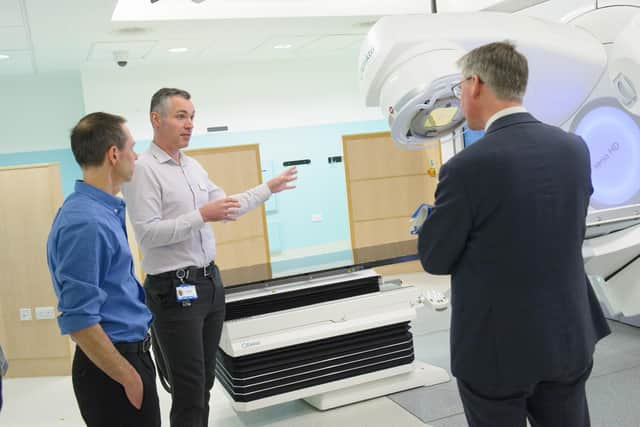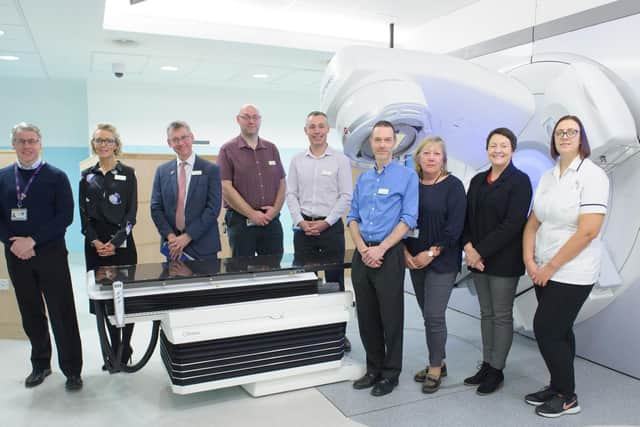New radiotherapy machine to deliver cutting edge cancer treatment in Leeds St James’s Hospital
and live on Freeview channel 276
The new linear accelerator (linac) allows a specific dose of radiation to be targeted directly to cancerous cells with more precision and less damage to the healthy cells surrounding them.
It will form an important part of patients’ care plans, providing the most cutting-edge treatment available.
Advertisement
Hide AdAdvertisement
Hide AdBy offering a higher definition radiation beam, the new machine delivers faster treatment and an improved experience for patients.


Each patient is given their own personalised radiotherapy treatment plan based on the requirements of their condition so the radiographer can accurately deliver the exact treatment needed.
Radiotherapy is an important part of cancer treatment and, after surgery to remove the tumour, cures more people than cancer drugs.
The older equipment used currently, which is due for replacement in the first half of 2020, still delivers some of the best treatment available in the country.
Advertisement
Hide AdAdvertisement
Hide AdHazel Rodger, Head of Radiotherapy at Leeds Teaching Hospitals Trust, said: “This new state-of-the-art linac machine is part of a programme that constantly upgrades our radiotherapy equipment to ensure that patients are getting the best treatment possible at all times.


“We’re proud here in Leeds to be able to deliver some of the best cancer radiotherapy treatment available in the world.”
The first wave of linac machines were installed in Leeds from 2008 when the facility was opened.
They are part of a managed service schedule which means that a planned programme of maintenance, updates, quality assurance and replacement maintains high standards of care at all times.
Advertisement
Hide AdAdvertisement
Hide AdThe 10 linac machines in Leeds are used on average between 8 am and 6.30 pm with each treating about 50 patients a day at the Leeds Cancer Centre – the most machines of this type on a single hospital site in the country.
When a machine reaches 10 years old they are replaced as part of this planned programme.
The introduction of the latest machine in Leeds means that the remaining two linacs on the replacement programme that have reached that milestone will be taken out of use during 2020 and new machines tested and installed.